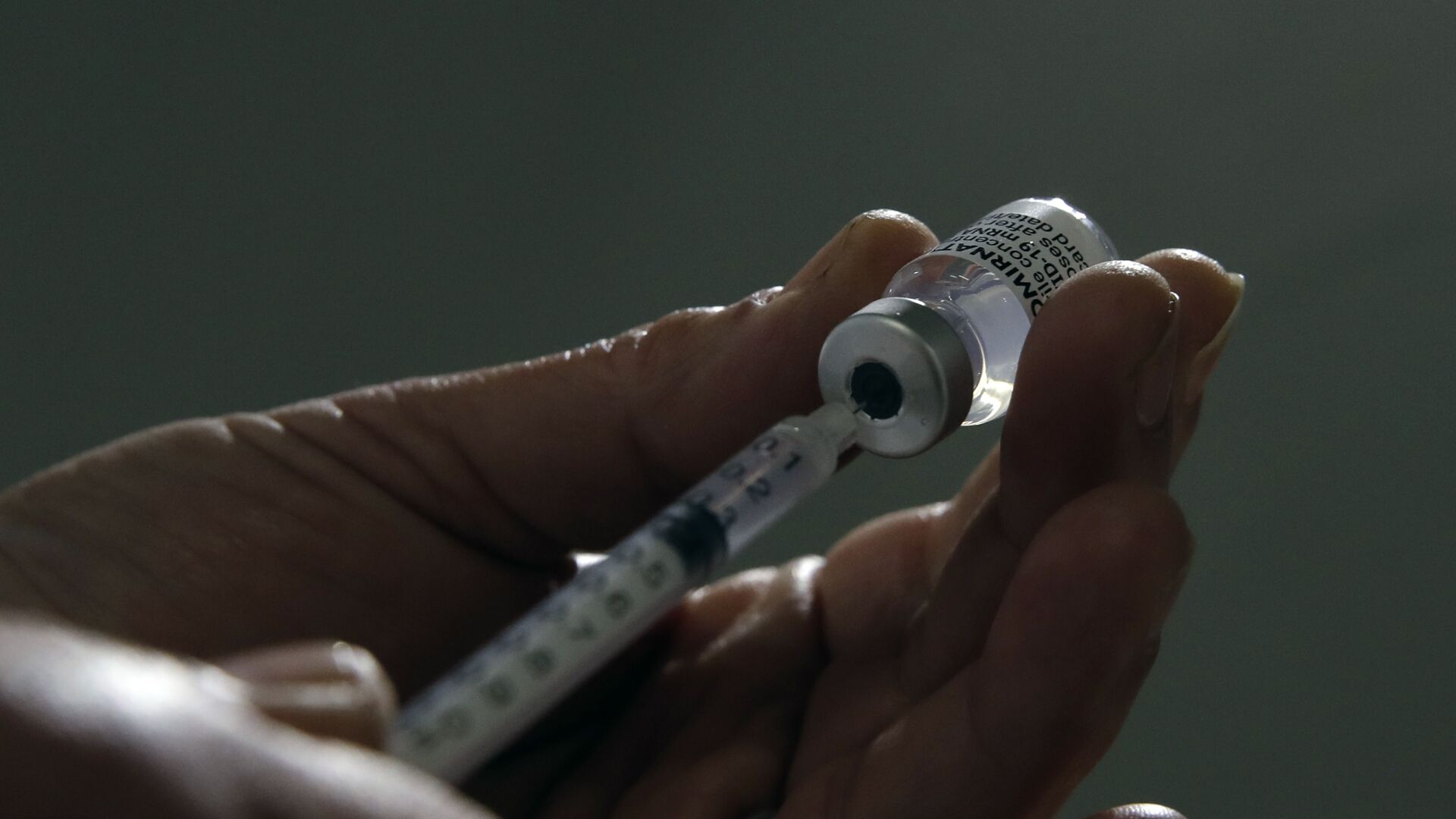https://sputnikglobe.com/20211223/major-norwegian-study-finds-covid-19-vaccines-interfere-with-young-womens-periods-1091737451.html
Major Norwegian Study Finds COVID-19 Vaccines Interfere With Young Women's Periods
Major Norwegian Study Finds COVID-19 Vaccines Interfere With Young Women's Periods
Sputnik International
Almost twice as many young Norwegian women have experienced a heavier menstrual period than they have been used to after receiving their COVID-19 shots, a large population study has found in preliminary results.
2021-12-23T06:16+0000
2021-12-23T06:16+0000
2021-12-23T06:16+0000
newsfeed
norway
scandinavia
vaccines
side effects
covid-19
https://cdn1.img.sputnikglobe.com/img/07e5/07/0b/1083361294_0:0:3072:1728_1920x0_80_0_0_fee0323be0daa530655e989ba81541eb.jpg
Almost twice as many young Norwegian women have experienced a heavier menstrual period than they have been used to after receiving their COVID-19 shots, a large population study has found in preliminary results.To investigate whether there is a connection between the COVID-19 shots and various bleeding disorders, the National Institute of Public Health (FHI) is now conducting a large study among more than 60,000 girls and women aged 12-80 in Norway. So far, preliminary results for the 6,000 women representing the 18-30 age bracket have been published.The share of women who said they experienced heavy bleeding has increased from 7.6 percent before vaccination to 13.6 percent after vaccination. Their share increased further to 15.3 percent after the second shot.Other frequently reported symptoms included prolonged bleedings, unusually short or long intervals, unexpected intermitted bleeding, extra painful periods, or even menstrual pain without bleeding.Based on the preliminary results, FHI listed a number of tips for women who have experienced menstrual disorders, including postponing further vaccination until the cause has been investigated or the symptoms have passed.Among the participants, 59.4 percent received Pfizer as the first dose, whereas 35.8 percent received Moderna, 4.7 percent AstraZeneca, and 0.2 percent Janssen (Johnson & Johnson). For dose two, 47.4 percent received Pfizer and and 52.6 percent Moderna.In the summer of 2021, women across the world began to report bleeding disorders after receiving a vaccine against coronavirus. In Denmark alone, their figure soared from several dozen to over a thousand in a matter of several weeks. By November, the number of reports exceeded 3,900. Norway, however, became the first nation to respond with a broad population survey, after having processed only 1,264 reports.
norway
scandinavia
Sputnik International
feedback@sputniknews.com
+74956456601
MIA „Rosiya Segodnya“
2021
News
en_EN
Sputnik International
feedback@sputniknews.com
+74956456601
MIA „Rosiya Segodnya“
Sputnik International
feedback@sputniknews.com
+74956456601
MIA „Rosiya Segodnya“
covid-19, vaccinations, menstrual issues, norway, norwegian study
covid-19, vaccinations, menstrual issues, norway, norwegian study
Major Norwegian Study Finds COVID-19 Vaccines Interfere With Young Women's Periods
The Norwegian study recorded a plethora of menstrual disorders after intake of various COVID-19 vaccines, including heavy or prolonged bleeding, irregular intervals, or extra pain.
Almost twice as many young Norwegian women have experienced a heavier menstrual period than they have been used to after receiving their COVID-19 shots, a large population study has found in preliminary results.
To investigate whether there is a connection between the COVID-19 shots and various bleeding disorders, the National Institute of Public Health (FHI) is now conducting a large study among more than 60,000 girls and women aged 12-80 in Norway. So far, preliminary results for the 6,000 women representing the 18-30 age bracket have been published.
"We see in this study that a number of women experienced various disorders after the first or second dose of the COVID vaccine", project manager FHI doctor Lill Trogstad said in a press release.
The share of women who said they experienced heavy bleeding has increased from 7.6 percent before vaccination to 13.6 percent after vaccination. Their share increased further to 15.3 percent after the second shot.
Other frequently reported symptoms included prolonged bleedings, unusually short or long intervals, unexpected intermitted bleeding, extra painful periods, or even menstrual pain without bleeding.
Based on the preliminary results, FHI listed a number of tips for women who have experienced menstrual disorders, including postponing further vaccination until the cause has been investigated or the symptoms have passed.
Among the participants, 59.4 percent received Pfizer as the first dose, whereas 35.8 percent received Moderna, 4.7 percent AstraZeneca, and 0.2 percent Janssen (Johnson & Johnson). For dose two, 47.4 percent received Pfizer and and 52.6 percent Moderna.
In the summer of 2021, women across the world began to report bleeding disorders after receiving a vaccine against coronavirus. In Denmark alone, their figure soared from several dozen to over a thousand in a matter of several weeks. By November, the number of reports exceeded 3,900. Norway, however, became the first nation to respond with a broad population survey, after having processed only 1,264 reports.



